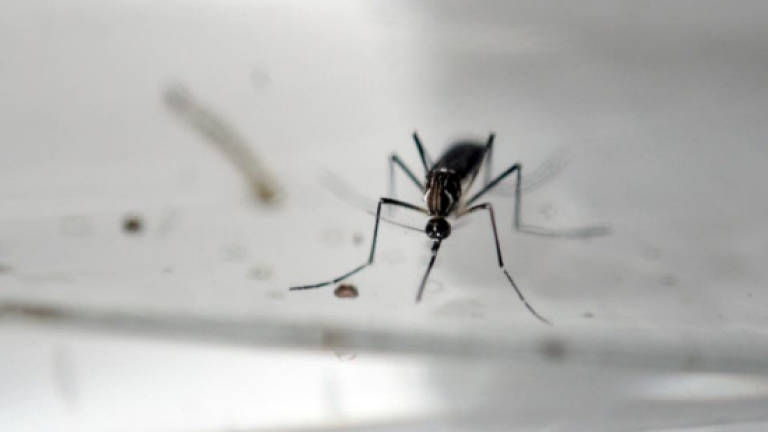Wolbachia-carrying mosquitoes to be released in January 2017

IPOH: Scientists are currently fighting dengue fever with the help of Wolbachia, a common bacterium that stops the virus from replicating inside the mosquitoes that transmit dengue virus.
The aim is to reduce infections in human by getting Wolbachia infected mosquitoes to mate and pass the bacterium to future generations.
Perak Health Department director Datuk Dr Juita Ghazalie said the vast number of wild mosquitoes will eventually carry Wolbachia and thus be unable to transmit dengue.
"Wolbachia is a naturally occurring bacterium that is present in almost 60% of different types of insects but not found in Aedes aegypti mosquitoes," she said in a statement today.
Wolbachia, which is classified as a bio-control agent and not a genetically modified organism to be regulated, poses no threat to humans.
Australia was the first country to release Wolbachia infected Aedes aegypti in 2011. After nine months, no locally acquired dengue cases were reported.
Other countries that have released Wolbachia infected Aedes aegypti were Vietnam, Indonesia and Tahiti while in Singapore, Thailand and United States the project is ongoing.
Malaysia started the Wolbachia project early this year in collaboration with Lancaster University, United Kingdom using the Replacement Method.
The Wolbachia infected mosquitoes are expected to be released in January 2017 and the project to be evaluated in December 2020.
Continuous release of these infected Wolbachia Aedes aegypti mosquitoes will suppress the natural Aedes population to a very low level thus preventing disease transmission.
Dr Juita said two locations for the projects with high density of Aedes aegypti and Aedes albopictus have been selected.